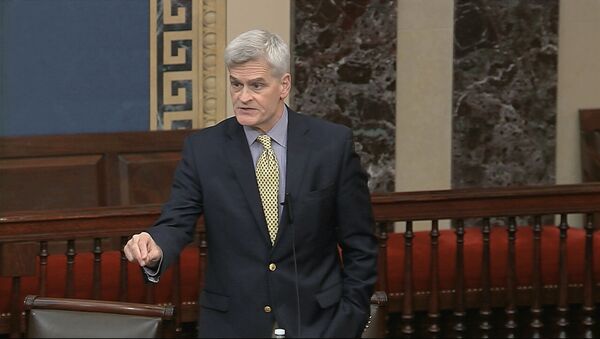Republican Senator Bill Cassidy, representing Louisiana, a major oil producing state, introduced on Thursday legislation that would pull all US troops out of Saudi Arabia unless the kingdom, the world’s largest oil exporter, reduces its crude oil output.
Cassidy’s bill, calling to take “certain actions in response to Saudi Arabia’s aggression towards the United States petroleum industry”, suggests withdrawing US troops from the kingdom “not later than 30 days after the date of the enactment”, more quickly than earlier legislation submitted by Senators Kevin Cramer and Dan Sullivan in late March.
“Our nation’s economy, national security and the economic welfare of families across Louisiana is threatened by oil being dumped on the world market at below-production costs. The US spends billions protecting other oil producing countries and their ability to safely transport oil around the world. Now is the time to protect ourselves. Tariffs will restore fair pricing. Withdrawing troops placed to protect others recognizes that friendship and support is a two-way street,” Cassidy said in a press release.
Cassidy’s legislation also suggests implementing tariffs on oil imports from Riyadh within 10 days of enactment. He said that oil imports from Saudi Arabia would be “not less than $40 per barrel”.
The Senator argued that the extra supply by Saudi Arabia to the global oil market has resulted in pushing prices to 18-year lows, making it “impossible” for US energy companies to compete.
Contrary to the Cramer-Sullivan bill, Cassidy’s legislation does not require removing US Patriot missiles or THAAD defence systems from the kingdom.
The legislation would need to pass through the US Senate and the House of Representatives, which are currently out until at least 20 April and possibly longer due to restrictions implemented to slow the spread of the novel coronavirus (COVID-19) pandemic.
The bill was introduced prior to an announcement of a new OPEC+ oil output cuts deal.
On Friday, following a 10-hour online negotiation, all 23 countries of the OPEC+ alliance agreed on the need to reduce crude oil production by a total of 10 million barrels per day in the next two months, May and June, in a bid to stabilize the market. They also agreed on a new deal for two years with gradual cuts in oil production.


